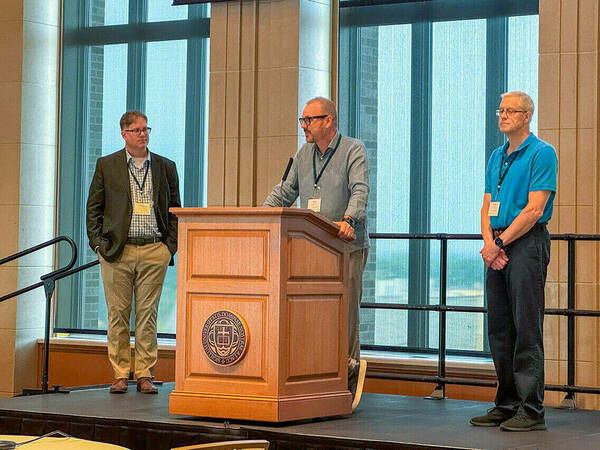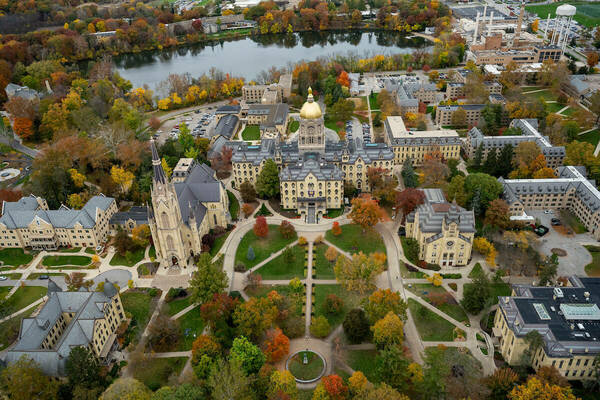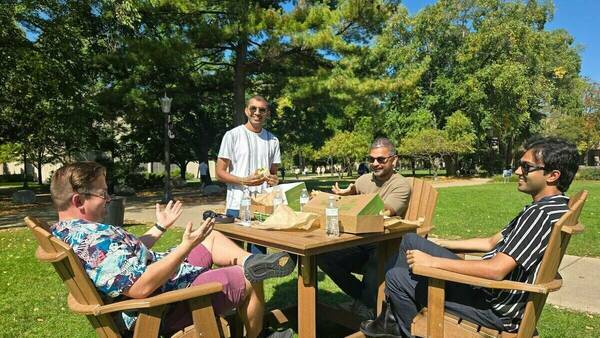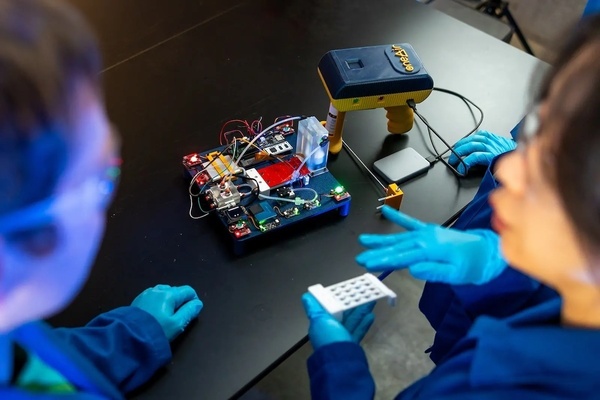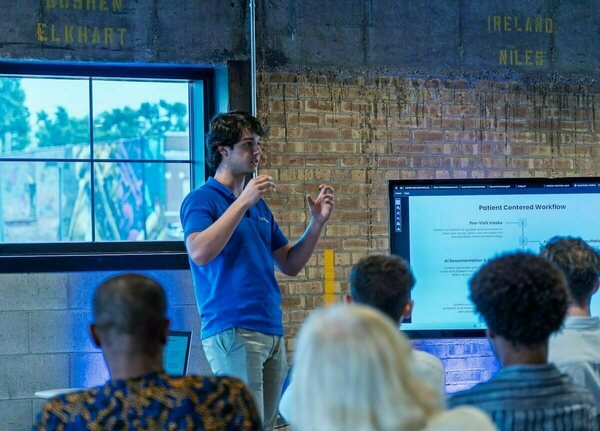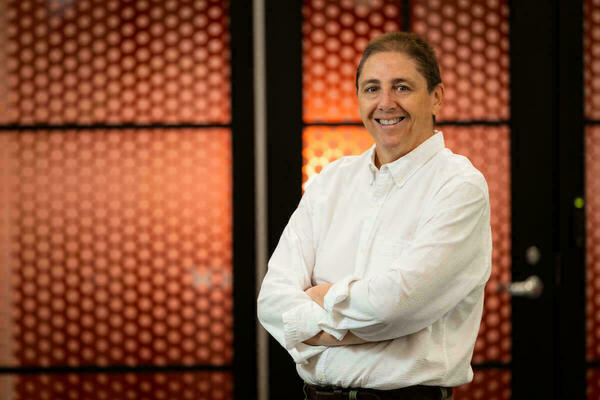Notre Dame Center for Research Computing and College of Engineering leaders host 34th ACM International Symposium on HPDC
Over the summer, the University of Notre Dame hosted the 34th ACM International Symposium on High-Performance Parallel and Distributed Computing (HPDC). HPDC brought together more than 100 attendees from around the world to the University for workshops, tutorials, paper and poster sessions, and keynote speakers.
Jarek Nabrzyski, the U.S. National Science Foundation (NSF) Cyber SMART executive director, site director for the University of Notre Dame, co-principal investigator of NSF CI Compass, and founding director and professor of practice at Notre Dame’s Center for Research Computing, co-chaired the event with Douglas Thain, professor of computer science and engineering, within the College of Engineering at the University of Notre Dame.
The event brought together both academic and industry leaders to share ideas and findings, with keynote speakers that inspired collaborative discussion sessions.
“It was a pleasure to bring together national and international leaders and students in HPDC together for the first time at the University of Notre Dame. The research we observed, and fellow researchers we engaged with, will help shape the future of
both high-performance computing (HPC) and HPDC,” said Nabrzyski.
The four day symposium featured multiple keynote speakers, who gave presentations and hosted discussions with attendees. Andrew Jones presented “Has HPC changed forever? And what is next?” Jones leads the Future Capabilities for Supercomputing and artificial intelligence (AI) within Microsoft Azure Engineering. Fred Chong, Seymour Goodman professor in the Department of Computer Science at the University of Chicago, presented, “Physics-Aware, Full-Stack Software to Accelerate Practical Quantum Computing.”

“Assembling the top minds - both new and established - in the HPDC space gives us the opportunity to convene with colleagues and gain new perspectives on how to begin solving critical challenges,” said Thain. “I am excited to see the work unfolding that is critical to advancing scientific computing and the services it supports.”
Each year beginning in 2012, the conference presents the HPDC Achievement Award to an individual who has made long-lasting and influential contributions to the foundations and/or practice of the field of high-performance parallel and distributed computing. This year, the 2025 HPDC Achievement Award recipient was Michela Taufer, Jack Dongarra Professor in High-Performance Computing (HPC), at the University of Tennessee, Knoxville. During the symposium, Taufer participated in the panel discussion: “Tomorrow’s HPC/HPDC: Golden Age, Cambrian Explosion, Both, Something Else?” led by Peter Kogge, Ted H. McCourtney Professor of Computer Science and Engineering at Notre Dame. Panel participants included Tom Conte, associate dean for research; professor, Computer Science and Electrical & Computer Engineering, Georgia Institute of Technology; Siddharth Joshi, assistant professor, computer science and engineering, University of Notre Dame; and Scott Pakin, scientist at Los Alamos National Laboratory. The panel posed observations on where in the current historical timeline of computing the current technology and approaches to them are.

Learn more about the 2025 event by visiting the event website, and watch for information for the 35th HPDC Symposium here: https://hpdc.sci.utah.edu/
Learn more about the CRC by visiting: crc.nd.edu
About Cyber SMART
NSF Cyber SMART is a U.S. National Science Foundation (NSF) Industry-University Collaborative Research Center (IUCRC). Its participating research institutions include Georgetown University, the University of Notre Dame, the University of Technology Sydney, and Virginia Tech.
To learn more about Cyber SMART, please visit cybersmartcenter.org
Contact: Christina Clark, Research Communications Specialist
Cyber SMART / Notre Dame Research / University of Notre Dame
cclark26@nd.edu / 574.631.2665
Originally published by at cybersmartcenter.org on September 23, 2025.
Latest Research
- Notre Dame faculty receive prestigious early career awards from the National Science FoundationDuring the 2024-2025 academic year, four researchers in the University of Notre Dame’s Colleges of Engineering and Science received early career awards from the National Science Foundation (NSF). The Faculty Early Career Development (CAREER) Program is one of the NSF’s most prestigious awards…
- Postdoc Appreciation Week: Meet three postdoctoral scholars driving research and innovation at Notre DameDuring Postdoc Appreciation Week, the Graduate School and Office of Postdoctoral Affairs celebrate our Notre Dame postdocs, their invaluable contributions, and the lasting impact they have on our drive to be a force for good in the world. To understand the full scope of the talented postdocs that Notre Dame has attracted and the research they are conducting, meet three of them.
- Notre Dame opens applications for 2026 Provost’s Postdoctoral Fellowship programThe University of Notre Dame is accepting applications for the next cohort of…
- Fighting for Better Virus DetectionAn electronic nose developed by Notre Dame researchers is helping sniff out bird flu biomarkers for faster detection and fewer sick birds. Read the story
- Notre Dame’s seventh edition of Race to Revenue culminates in Demo Day, a celebration of student and alumni entrepreneurship…
- Managing director brings interdisciplinary background to Bioengineering & Life Sciences InitiativeThis story is part of a series of features highlighting the managing directors of the University's strategic initiatives. The managing directors are key (senior) staff members who work directly with the…



